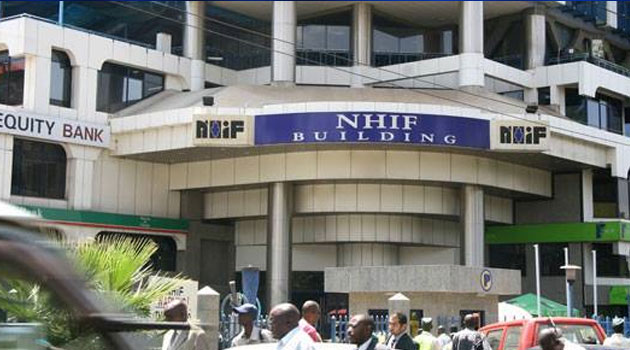
TUC Kenya officials led by Kenya National Union of Teachers Secretary General (KNUT), Wilson Sossion, said they had failed to reach an agreement with the government over the new rates and therefore the July 1 strike notice they gave in June was in effect.
NAIROBI, Kenya, Jul 1 – The Trade Union Congress (TUC) Kenya has said it will paralyse the public service over the government’s failure to revoke the new National Hospital Insurance Fund rates.
TUC Kenya officials led by Kenya National Union of Teachers Secretary General (KNUT), Wilson Sossion, said they had failed to reach an agreement with the government over the new rates and therefore the July 1 strike notice they gave in June was in effect.
The Dock Workers Union was the first to make good the threat and paralysed operations at the Port of Mombasa when they downed their tools on Wednesday.
“They (the government) have deployed GSU to the Kenya Ports Authority depot in Nairobi and Mombasa but we’re not afraid to stare down the barrel of a gun. We died yesterday and they’re now dealing with corpses,” Simon Sang, the Dock Workers Union Secretary General, said.
Public school teachers, university lecturers and non-teaching staff as well as other civil servants affiliated with the TUC Kenya were called upon by their union leaders to stand in solidarity with the dock workers and commence protesting the new NHIF rates on Thursday morning.
“In Nairobi we will convene outside the TUC Kenya headquarters at KNUT House and hold the biggest procession this town has ever seen. Let us show the government that we are the government. Let us show the government that we are the economy,” Tom Odege, General Secretary of the Union of Kenya Civil Servants, announced.
Other than the Dock Workers Union, KNUT and UKCS, other unions affiliated with TUC Kenya are the Kenya Universities Staff Union (KUSU), Universities Academic Staff Union (UASU), the Kenya Union of Employees of Polytechnic Colleges (KUEPC) and the Kenya National Union of Service Employees (KNUSE).
The unions said they would only call off their general strike when the NHIF board revoked the rates it gazetted in February and implemented in April; reinstating the previous Sh320 deduction. They also demanded a refund of any and all amounts above that, already deducted from their members in the months of April, May and June.
“We had proposed a 1.5 percent NHIF deduction of the basic pay not gross as they have gone and done but now even that is off the table. Let’s go back to the Sh320 standard deduction,” Sossion said.
He accused the Ministry of Labour of negotiating with TUC Kenya in bad faith, by putting an offer on the table then pulling it.
“They were to suspend the offending gazette notice and we would revoke the strike notice but as happened when KNUT was negotiating with the Teachers Service Commission, somebody else was pulling the strings,” Sossion said.
Charles Mukhwaya, KUSU Secretary General, accused President Uhuru Kenyatta’s government of having the worst labour relations record in Kenya’s history.
“The commissions constitutionally mandated to look after our welfare have been barred from negotiating with us. And even after the court orders for a pay increment, they fight it. We are slowly creeping back into a dictatorship. But we are not sheep; we will not blindly follow what we are told to do. We will enjoy our hard fought freedoms. It appears that only President Uhuru Kenyatta has the power to make a decision so let him come and negotiate with us.”
They said it was unfair for the Kenyan worker to foot the bill for universal healthcare while state officers and elected officials enjoyed superior health coverage on their bill.
“The government is contributing nothing and yet state officers enjoy private cover on our dime. MPs don’t even pay taxes but they presume to know how we should spend our hard earned taxes,” Sossion charged.
Sossion also questioned the nature of reforms at the NHIF saying they would first require unrefutable proof that any additional monies their members would contribute to NHIF would not line individual pockets.
“We will not be anybody’s fool. Where has the additional money we have already contributed gone? We will not be party to another Goldenberg or Anglo Leasing.”
The Congress said they would also need to see a significant improvement in public health before again considering paying more in NHIF contributions.
“We’ve seen the buck passing between the national and county governments where public health facilities are concerned. Even if you bring in more equipment, where are the technicians? Where is the medicine? We’re sent to the private pharmacies anyway so we might as well stick there,” Sossion said.
The new rates are graduated between Sh150 for those who earn less than Sh6,000 and Sh1,700 for those with a gross income above Sh100,000.








































